Igor Churin
Long Input Benchmark for Russian Analysis
Aug 05, 2024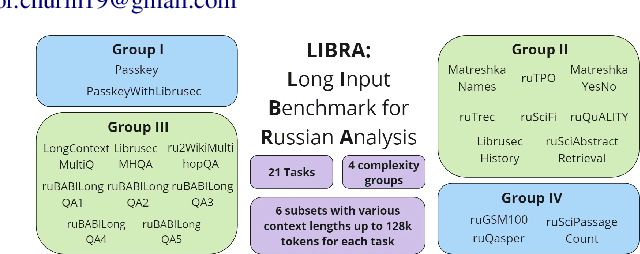
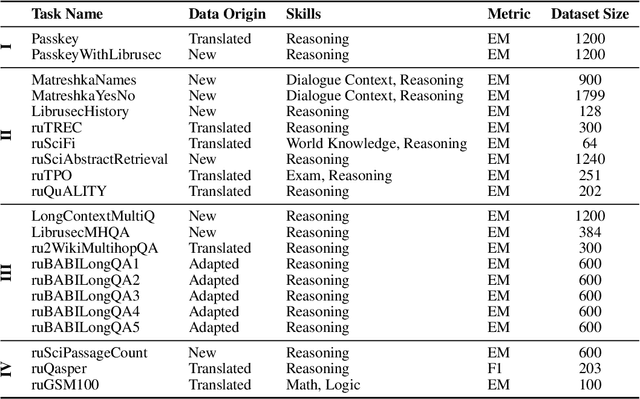
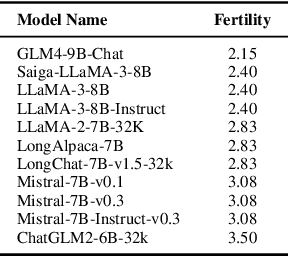
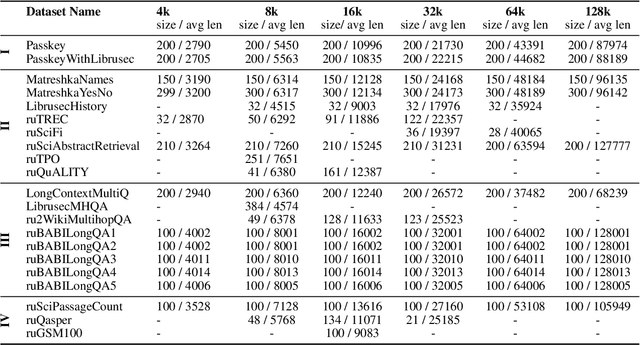
Abstract:Recent advancements in Natural Language Processing (NLP) have fostered the development of Large Language Models (LLMs) that can solve an immense variety of tasks. One of the key aspects of their application is their ability to work with long text documents and to process long sequences of tokens. This has created a demand for proper evaluation of long-context understanding. To address this need for the Russian language, we propose LIBRA (Long Input Benchmark for Russian Analysis), which comprises 21 adapted datasets to study the LLM's abilities to understand long texts thoroughly. The tests are divided into four complexity groups and allow the evaluation of models across various context lengths ranging from 4k up to 128k tokens. We provide the open-source datasets, codebase, and public leaderboard for LIBRA to guide forthcoming research.
Interactive Grounded Language Understanding in a Collaborative Environment: IGLU 2021
May 05, 2022
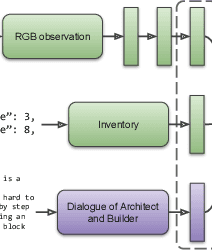

Abstract:Human intelligence has the remarkable ability to quickly adapt to new tasks and environments. Starting from a very young age, humans acquire new skills and learn how to solve new tasks either by imitating the behavior of others or by following provided natural language instructions. To facilitate research in this direction, we propose \emph{IGLU: Interactive Grounded Language Understanding in a Collaborative Environment}. The primary goal of the competition is to approach the problem of how to build interactive agents that learn to solve a task while provided with grounded natural language instructions in a collaborative environment. Understanding the complexity of the challenge, we split it into sub-tasks to make it feasible for participants.
* arXiv admin note: substantial text overlap with arXiv:2110.06536
 Add to Chrome
Add to Chrome Add to Firefox
Add to Firefox Add to Edge
Add to Edge